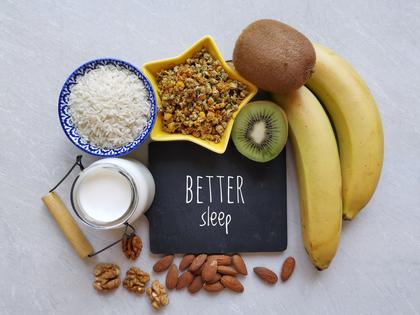6 fruits that will help you sleep better
Published in Health & Fitness
If you regularly struggle to get a good night’s rest, you’ve probably tried a variety of strategies, such as meditating or journaling. However, your eating habits also play a significant role in the quality of your sleep. Here are six fruits to consider adding to your diet to support better sleep.
1. Kiwi
Thanks to high levels of melatonin and serotonin, eating fresh kiwi can promote sleep. One study suggests that a serving of two medium-sized green kiwis one hour before bedtime is ideal.
Serotonin, the precursor to melatonin, helps with relaxation, mood, thermoregulation, and the sleep-wake cycle. “In the body, serotonin works by creating a sense of relaxation and emotional well-being, which helps prepare the mind for sleep,” explains Jennifer Pallian, RD, registered dietitian. “It also regulates physiological rhythms like body temperature and motor control, which influence restfulness.”
Melatonin is essential for regulating and resynchronizing the body’s internal clock. “This synchronization is key for falling asleep faster and maintaining sleep through the night,” Pallian explains.
2. Pineapple
Pineapple is packed with melatonin, serotonin, and tryptophan — compounds that help regulate sleep, body temperature, and circadian rhythms. Tryptophan, in particular, plays a key role in promoting sleep since it’s the only precursor to serotonin, which then helps create melatonin. In one study, juice from one kilogram of pineapple was shown to significantly increase serum melatonin and antioxidant levels. “Though the study used juice, fresh pineapple is likely just as effective because it contains similar compounds,” Pallian says.
3. Cherries
Robin Barrie Kaiden, MS, RD, CDN, registered dietitian, recommends reaching for Montmorency cherries in particular, which are especially high in melatonin, making them a standout for sleep support. These tart cherries also come with a bonus: they contain tryptophan and anthocyanins, a powerful antioxidant that helps protect your cells from damage caused by factors like stress, pollution, and high-fat, high-sugar diets. “Due to their anti-inflammatory properties, they can relax muscles, thus resulting in a calmer body and better sleep,” Kaiden says.
4. Avocado
“The sleep-supportive effects of avocado may be partly attributed to its magnesium content,” Pallian says. Magnesium doesn’t just help your body make melatonin, but it also helps regulate brain chemicals like GABA, which promotes relaxation and calms the nervous system, both of which are key for falling and staying asleep. According to one study, the ideal intake for sleep support is one whole avocado.
5. Banana
Packed with both melatonin and tryptophan, bananas have some real sleep-promoting abilities. One study suggests that eating two whole bananas helps support better sleep, but the benefits don’t stop there. “The antioxidants in bananas also reduce oxidative stress, and in so doing, may further contribute to restful sleep,” Pallian says, referring to their role in lowering inflammation and supporting brain health, both of which make it easier for your body to relax and ease into deeper, more restorative sleep.
6. Grapes
Naturally containing melatonin, grapes also come with a hefty dose of antioxidants that help reduce stress and inflammation, two factors that can mess with your health and sleep. “Plus, they’ve got a high water content for hydration and plenty of fiber, which can improve digestive comfort,” Kaiden says. For the best melatonin boost, go for red or purple grapes, as they tend to have higher levels of the sleep-promoting hormone than green ones.
(Real Simple magazine provides smart, realistic solutions to everyday challenges. Online at www.realsimple.com.)
©2025 Dotdash Meredith. All rights reserved. Used with permission. Distributed by Tribune Content Agency, LLC.










Comments